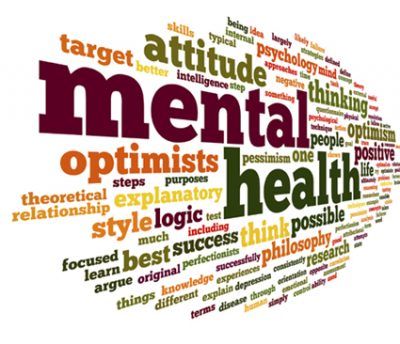Welcome to a comprehensive guide that will familiarize you with the essential elements of effective therapy trainings. In today’s fast-paced world, mental health care has become a crucial aspect of our well-being. With therapy trainings playing a pivotal role in enhancing the skills and expertise of mental health professionals, it is important to understand what makes these trainings truly effective. By delving into the realm of therapy trainings, we will explore the key components that promote growth and transformation within the field of mental health care. So, whether you are an aspiring therapist or seeking to expand your knowledge in this domain, this guide will equip you with valuable insights to navigate the world of therapy trainings and unlock your full potential.
Importance of Therapy Trainings
Therapy trainings play a crucial role in the field of mental health care. They provide therapists with essential skills, knowledge, and tools needed to effectively support individuals in need. With the complexities and diversity of mental health issues, these trainings are vital for professionals to stay updated and competent in their practice.
One of the key reasons why therapy trainings are important is that they equip therapists with the latest evidence-based techniques and interventions. As new research emerges, these trainings ensure that therapists are aware of the most effective approaches to address various mental health concerns. By staying informed and educated, therapists can provide the best possible care and support to their clients.
Moreover, therapy trainings help therapists develop their professional competence. Through these trainings, therapists can enhance their skills in areas such as assessment, diagnosis, and treatment planning. They learn how to navigate complex clinical scenarios, handle challenging situations, and make informed decisions regarding the well-being of their clients. This continuous growth and development ultimately contribute to improved client outcomes.
Additionally, therapy trainings foster collaboration and peer learning among professionals. These trainings often provide opportunities for therapists to come together, share experiences, and learn from one another’s perspectives. This collaborative environment promotes the exchange of ideas, promotes innovation, and enhances the overall quality of mental health care delivery.
In summary, therapy trainings are of utmost importance in the field of mental health care. They ensure therapists stay up-to-date with the latest evidence-based practices, enhance their professional competence, and foster a collaborative learning environment. By investing in these trainings, therapists can provide effective support and care to individuals seeking help for their mental health concerns.
2. Key Components of Effective Therapy Trainings
Effective therapy trainings require several key components to ensure the best outcomes in mental health care. These components provide a solid foundation for therapists to develop their skills and enhance their ability to support individuals in need. In this section, we will explore three essential aspects that contribute to the effectiveness of therapy trainings.
-
Theoretical Knowledge: A strong understanding of various therapeutic theories is crucial for therapists to effectively navigate the complexities of mental health care. Therapy trainings must emphasize the importance of theoretical knowledge, covering a range of approaches such as cognitive-behavioral therapy, psychoanalysis, and person-centered therapy. By equipping therapists with a diverse theoretical framework, they can tailor their interventions to meet the unique needs of their clients.
-
Practical Skills: In addition to theoretical knowledge, therapy trainings should focus on developing practical skills that therapists can apply in real-life scenarios. This includes honing active listening skills, empathetic communication techniques, and effective problem-solving strategies. By engaging in role-plays, case studies, and supervised practice sessions, therapists can enhance their ability to provide high-quality care and establish strong therapeutic relationships with their clients.
-
Continuing Education: Therapy trainings should not be seen as a one-time event but rather as an ongoing journey of professional development. Providing opportunities for therapists to engage in continuing education is crucial to ensure they stay up to date with the latest research and best practices in the field of mental health care. This can include attending workshops, conferences, and online courses focused on emerging therapeutic approaches and advancements in the field. By continuously expanding their knowledge and skills, therapists can provide the most effective and evidence-based treatments to their clients.
By incorporating these key components into therapy trainings, mental health care professionals can enhance their competence and confidence in supporting individuals on their journey towards healing and well-being. It is through these comprehensive and dynamic training experiences that therapists can truly make a positive impact in the lives of those they serve.
3. Benefits of Participating in Therapy Trainings

Enhanced Knowledge and Skills
Participating in therapy trainings allows mental health care professionals to expand their knowledge and acquire new skills. These trainings provide opportunities to learn about the latest developments and evidence-based practices in the field of therapy. By staying up-to-date with current research and techniques, therapists can enhance their ability to provide effective care and support for their clients.-
Professional Growth and Development
Engaging in therapy trainings promotes professional growth and development. These trainings often involve interactive workshops, case studies, and role-playing exercises, allowing therapists to apply new concepts and techniques in a practical setting. This hands-on experience helps them refine their skills and build confidence in their abilities. Additionally, participating in trainings can lead to networking opportunities, fostering connections within the mental health care community. -
Improved Client Outcomes
Join Now
Therapy trainings contribute to improved client outcomes by equipping therapists with the tools and knowledge necessary to provide high-quality care. Through trainings, therapists can learn effective strategies to address various mental health concerns and adapt their therapeutic approaches to meet the unique needs of their clients. By continuously enhancing their skills, therapists can offer better support, facilitate positive change, and promote overall mental well-being in their clients.
Remember to always seek professional consultation and conduct thorough research before engaging in therapy trainings to ensure that they align with your specific needs and professional goals.